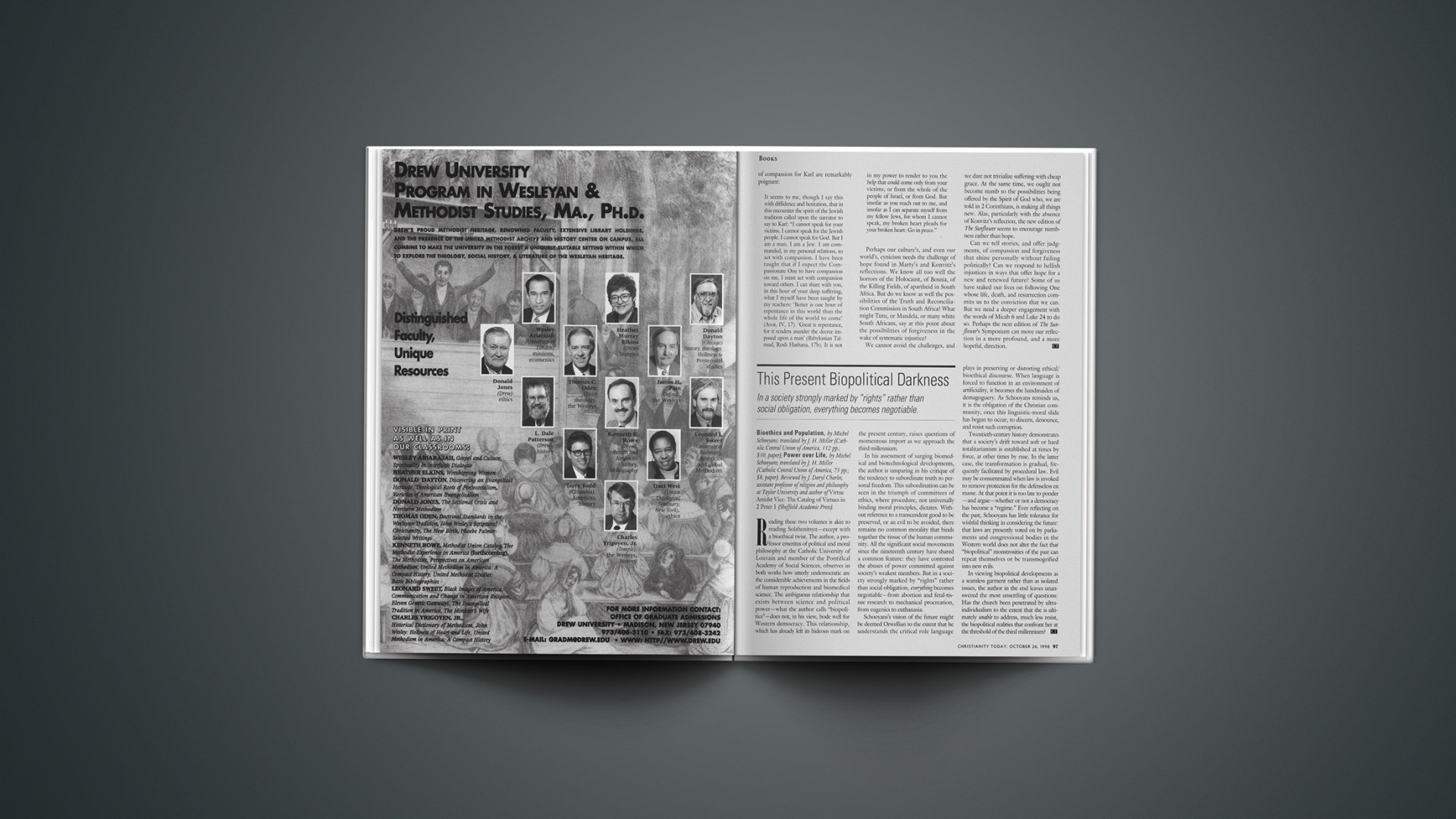Bioethics and Population, by Michel Schooyans; translated by J.H. Miller (Catholic Central Union of America, 112 pp.; $10, paper); Power over Life, by Michel Schooyans; translated by J.H. Miller (Catholic Central Union of America, 75 pp.; $8, paper). Reviewed by J. Daryl Charles, assistant professor of religion and philosophy at Taylor University and author of Virtue Amidst Vice: The Catalog of Virtues in 2 Peter 1 (Sheffield Academic Press).
Reading these two volumes is akin to reading Solzhenitsyn-except with a bioethical twist. The author, a professor emeritus of political and moral philosophy at the Catholic University of Louvain and member of the Pontifical Academy of Social Sciences, observes in both works how utterly undemocratic are the considerable achievements in the fields of human reproduction and biomedical science. The ambiguous relationship that exists between science and political power-what the author call “biopolitics”-does not, in his view, bode well for Western democracy. This relationship, which has already left its hideous mark on the present century, raises questions of momentous import as we approach the third millennium.
In his assessment of surging biomedical and biotechnological developments, the author is unsparing in his critique of the tendency to subordinate truth to personal freedom. This subordination can be seen in the triumph of committees of ethics, where procedure, not universally binding moral principles, dictates. Without reference to a transcendent good to be preserved, or an evil to be avoided, there remains no common morality that binds together the tissue of the human community. All the significant social movements since the nineteenth century have shared a common feature: they have contested the abuses of power committed against society’s weakest members. But in a society strongly marked by “rights” rather than social obligation, everything becomes negotiable-from abortion and fetal-tissue research to mechanical procreation, from eugenics to euthanasia.
Schooyans’s vision of the future might be deemed Orwellian to the extent that he understands the critical role language plays in preserving or distorting ethical/bioethical discourse. When language is forced to function in an environment of artificiality, it becomes the handmaiden of demagoguery. As Schooyans reminds us, it is the obligation of the Christian community, once this linguistic-moral slide has begun to occur, to discern, denounce, and resist such corruption.
Twentieth-century history demonstrates that a society’s drift toward soft or hard totalitarianism is established at times by force, at other times by ruse. In the latter case, the transformation is gradual, frequently facilitated by procedural law. Evil may be consummated when law is invoked to remove protection for the defenseless en masse. At that point it is too late to ponder-and argue-whether or not a democracy has become a “regime.” Ever reflecting on the past, Schooyans has little tolerance for wishful thinking in considering the future: that laws are presently voted on by parliaments and congressional bodies in the Western world does not alter the fact that “biopolitical” monstrosities of the past can repeat themselves or be transmogrified into new evils.
In viewing biopolitical developments as a seamless garment rather than as isolated issues, the author in the end leaves unanswered the most unsettling of questions: Has the church been penetrated by ultra-individualism to the extent that she is ultimately unable to address, much less resist, the biopolitical realities that confront her at the threshold of the third millennium?










